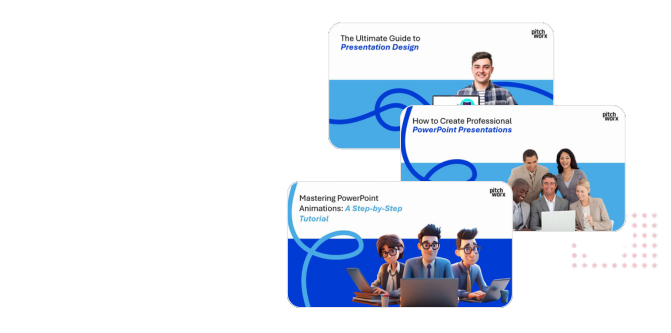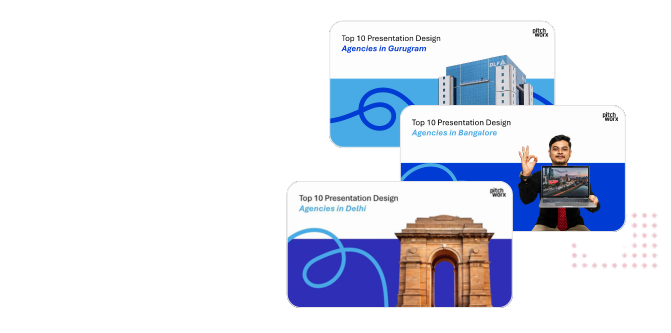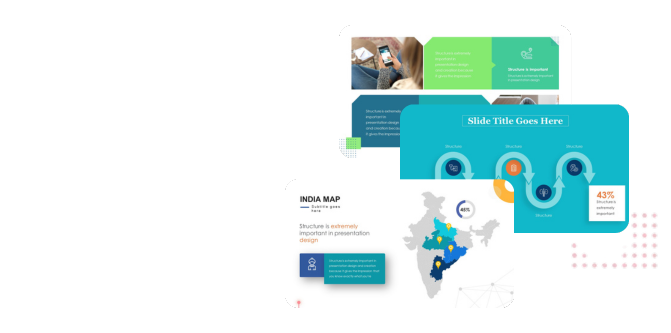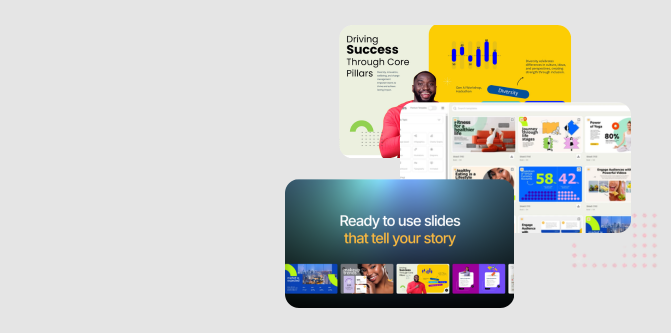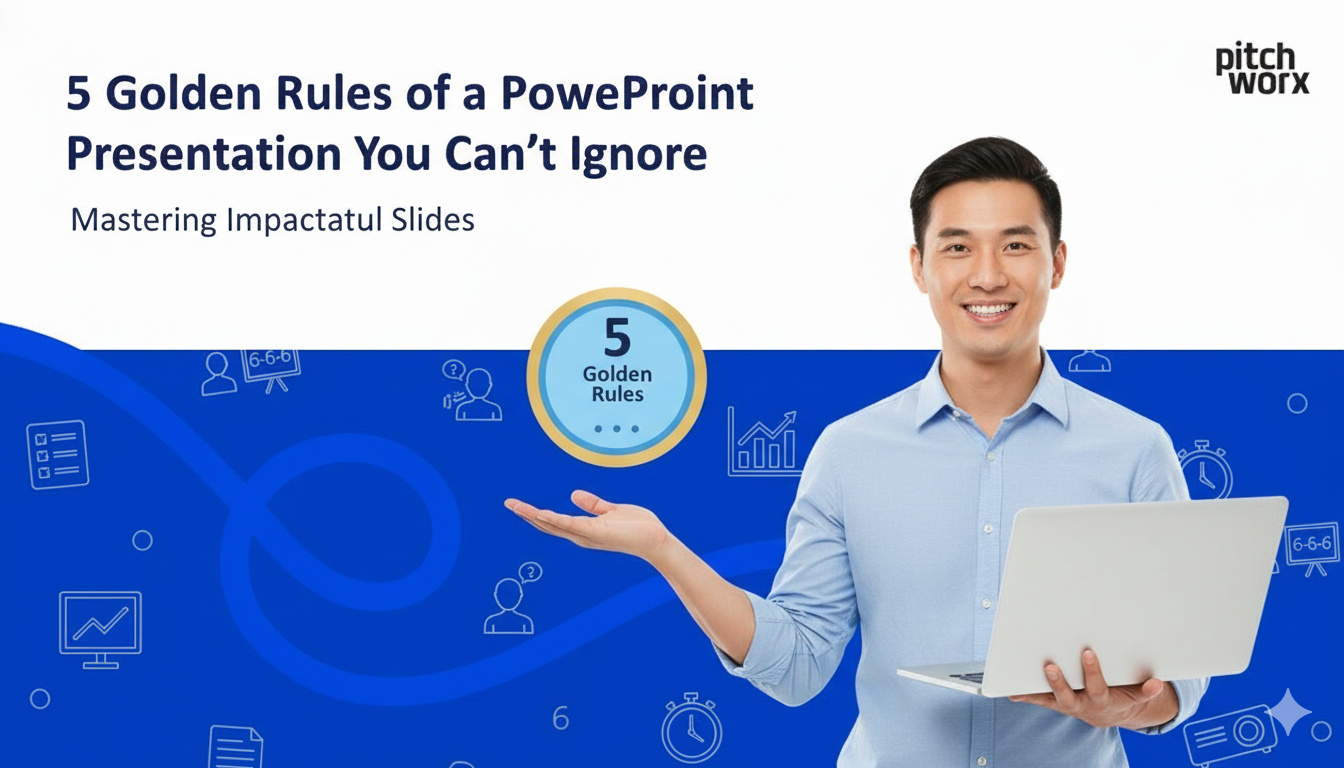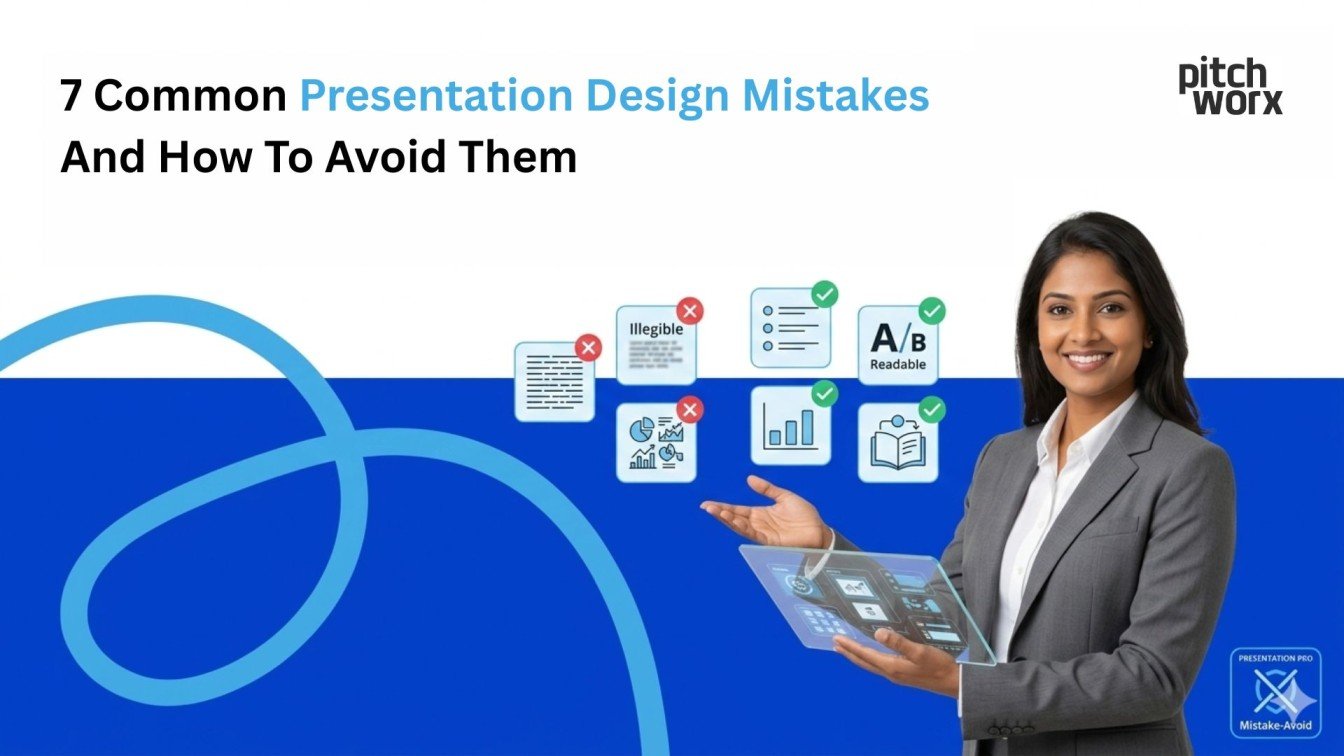Published: November 12, 2025 | Reading Time: 09 minutes | Author: PitchWorx Design Team
Table of Contents
- Introduction
- Rule 1: Keep It Visually Minimal—but Impactful
- Rule 2: Tell Data Stories, Don’t Dump Data
- Rule 3: Design for the Brain, Not Just the Eye
- Rule 4: Make It Investor-Friendly (Not Academic)
- Rule 5: Consistency Is Your Secret Weapon
- Visual Proof: Normal Pitch Deck vs. “5 Golden Rules” Deck
- Creativity That Sticks (and Scales)
- U.S. Startup Focus: High-Signal Slides for Pitch Rooms
- When to Bring in the Pros (and What to Ask For)
- About PitchWorx (Your U.S.-Trusted Design Partner)
- Future of PowerPoint for Startups: What’s Next
- Practical Checklist (Use This Before You Export to PDF)
- FAQs
- Wrap-Up & Next Step
Introduction
If you’re building a pitch deck in the U.S.—for angels, seed funds, or enterprise buyers—your slides are often your second voice in the room. Investors skim fast, make pattern-matching judgments, and back founders who communicate with clarity under pressure. This guide distills the 5 golden rules that consistently separate “nice slides” from decks that win meetings, pilots, and wire transfers.
1) Keep It Visually Minimal—but Impactful
One idea per slide. That simple constraint does more for clarity than any font or icon pack. Use generous whitespace, a strong visual anchor (hero stat, product shot, or short headline), and a predictable hierarchy. If a partner can grasp the point in <4 seconds and then look up to listen to you, the slide is doing its job.
2) Tell Data Stories, Don’t Dump Data
U.S. investors see hundreds of decks. Your goal isn’t to show everything—it’s to make the right thing unforgettable. Choose the right visual for the job: line charts for trends, bar charts for comparisons, and funnels for conversion. Draw a thin callout to the meaningful moment and use plain language: “Launch of v2 cut onboarding time by 41%.”
3) Design for the Brain, Not Just the Eye
Great slides align with how people process information. Split complex concepts across multiple slides to reduce cognitive load. Use progress markers (“2/5: Solution”) so viewers know where they are. Apply the F-pattern (headline left→right, key stat beneath) to align with Western scanning habits. Treat color as meaning, not just decoration.
4) Make It Investor-Friendly (Not Academic)
U.S. partners want to see the investment case unfold fast. The classic flow still works: Hook → Problem → Solution → Market → Product → Traction → Moat → Unit Economics → Team → Plan → The Ask. Keep your “Money Slide” (traction/efficiency) clean enough to screenshot into an email thread.
5) Consistency Is Your Secret Weapon
Inconsistent decks feel riskier. Consistency signals operational maturity. Standardize your grid, typography, iconography, charts, and brand elements. Build a starter kit or custom theme to enforce discipline.
Visual Proof: Normal Pitch Deck vs. “5 Golden Rules” Deck
A simple bar chart comparing a “Normal Deck” to a “Rule-Based Deck” on investor engagement would show a jump from 55% (skimmed, unclear) to 85% (clear story, memorable data).
Creativity That Sticks (and Scales)
Use micro-motion to reveal, not distract. Pick a narrative motif (e.g., “from friction to flow”). Use demo frames to tell a product story. Show outcome dashboards and customer quotes.
U.S. Startup Focus: High-Signal Slides for Pitch Rooms
Calibrate your traction and moat slides to speak your category’s language instantly. For B2B SaaS, show expansion ARR and net revenue retention. For Healthtech, show clinical validations and regulatory paths. For Fintech, show compliance stack and risk controls.
When to Bring in the Pros (and What to Ask For)
If you’re heads-down on product or fundraising, a Ppt Design Agency can compress weeks of iteration into days. A strong partner will audit your story, build a slide master, translate numbers into charts, and stress-test accessibility.
About PitchWorx (Your U.S.-Trusted Design Partner)
PitchWorx is a seasoned Ppt Design Agency trusted by founders and enterprise teams across the U.S. We combine narrative strategy with on-brand visual systems to ship investor-ready decks, sales presentations, and executive keynotes—fast.
Future of PowerPoint for Startups: What’s Next
The future includes AI-assisted drafting, embedded product moments (GIFs, Lotties), audience-aware variations of decks, and in-place data refresh from live dashboards. Let AI do the grunt work, but use human judgment for the story.
Practical Checklist (Use This Before You Export to PDF)
Check for one idea per slide, annotated charts, consistent typography, contrast-checked text, a logical flow, and a file size under 15 MB for the email version.
FAQs
1) Why do these rules matter so much for U.S. startup pitch decks?
Because partners and principals skim. Clear slides reduce friction and keep attention on your story.
2) What makes a Ppt Design Agency better than DIY templates?
Strategy. Agencies pair design craft with investor logic: what to omit, how to order, and how to spotlight the “Money Slide.”
3) What are the most important slides for U.S. investors?
Traction/efficiency, clear problem-solution, market size (bottom-up), and a roadmap tied to your raise.
Wrap-Up & Next Step
When you follow the 5 golden rules—minimal but impactful slides, data as stories, brain-friendly structure, investor-oriented flow, and ruthless consistency—you earn attention and accelerate trust. Your message lands, your traction sings, and your “Ask” feels inevitable. If you want to compress that journey, partner with a Ppt Design Agency that delivers premium Presentation Design Services with speed and rigor.




